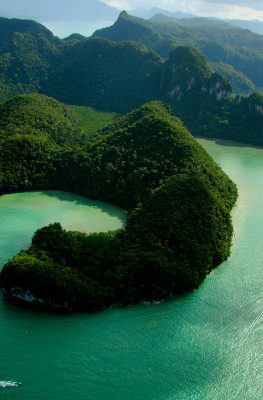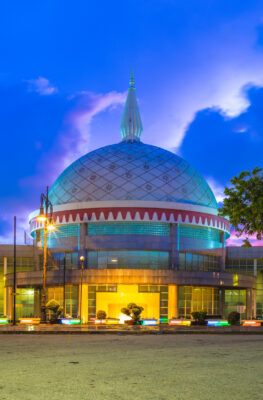Published on May 12, 2014
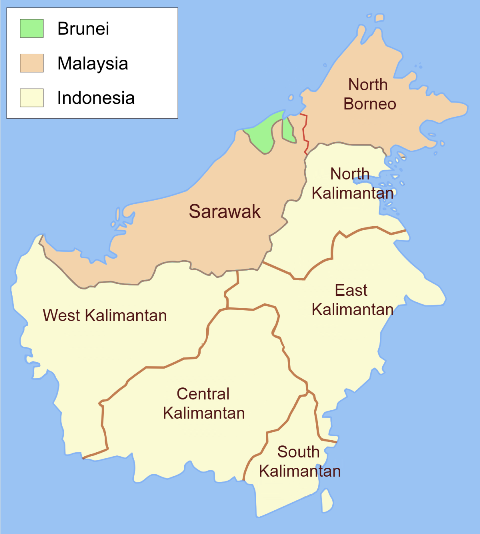
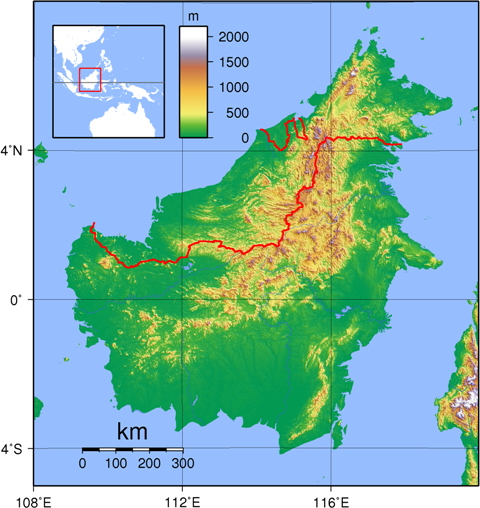
Borneo is the only island in the world to be divided between nations. Today Borneo is administered by three neighbouring ASEAN-member countries:
Brunei Darussalam. The independent Sultanate occupies two small parcels of land on the northwestern coast of the island (about 1% of Borneo);
Indonesia. The five Indonesian provinces of Kalimantan (West, Central, South, East, and North) occupy the central and southern regions of Borneo island (about 73%);
Malaysia. The Malaysian states of Sabah and Sarawak, which are (with the island of Labuan) referred to as East Malaysia, occupy the northern third of the island (about 26%).
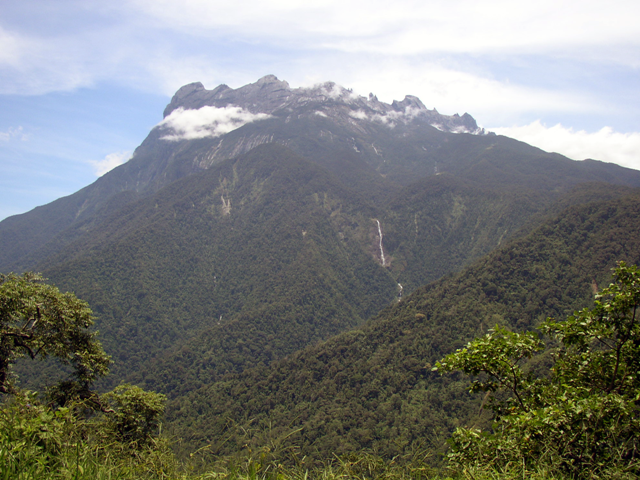
Mount Kinabalu in Sabah, Malaysia
Located at the “centre of maritime Southeast Asia” Borneo has witnessed and often times influenced the ebbs and flows of geopolitical fortune in the region.
As early as the first millennium, according to ancient Chinese, Indian and Javanese manuscripts, Borneo’s western coastal cities had become trading ports. Archaeological findings in the Sarawak river delta reveal that the area was a thriving trading centre between India and China from the 500s AD until about 1300 AD. The Indians named Borneo Suvarnabhumi (the land of gold) and also Karpuradvipa (Camphor Island). The Javanese named Borneo Puradvipa (diamond Island).
By the 14th century, Borneo was under the control of the Majapahit kingdom based in Java in present-day Indonesia. Majapahit was one of the last and most powerful empires in the history of Southeast Asia, having reached its peak during the era of Hayam Wuruk, whose reign from 1350 to 1389 was marked by conquests that extended throughout much of Southeast Asia, including present-day Indonesia, Singapore, Malaysia, Brunei, southern Thailand, Sulu Archipelago, Manila, and East Timor.
In the early 17th century, the Dutch began to establish trading agreements in present-day Indonesian Borneo, gaining a monopoly of the spice trade in Banjarmasin as well as the diamond trade in Sambas. They also made a contract with Pontianak. Gradually the Dutch took control of all of what is now Indonesian Borneo but failed to regain control after Japanese forces overran the island during World War II. When Indonesia achieved independence in 1945, Indonesian Borneo became the five Indonesian provinces of Kalimantan.
The Sultanate of Brunei (now Brunei Darussalam) ruled from its base on the northwest coast of Borneo from the 14th century. Muhammad Shah (born Awang Alak Betatar) established the Sultanate and was its first sultan from 1368 until his death in 1402. During its golden age, the Sultanate of Brunei established control of a large part of northern Borneo and southern Philippines. This was interrupted in 1658, when the northern and eastern coasts of Sabah were ceded to the Sultanate of Sulu based in the Philippines.
European influence gradually diminished Bruneian power although the Sultanate managed to win a war against Spain along the way. The British and Dutch governments signed the Anglo-Dutch Treaty of 1824 to exchange trading ports under their control and assert spheres of influence. This resulted in establishing British-and Dutch-controlled areas of Borneo in the north and south respectively. The decline of the Bruneian Empire culminated when it ceded Sabah to the British North Borneo Company and Sarawak to Englishman James Brooke.
As a reward for helping the Sultan of Brunei fight piracy and insurgency among indigenous peoples, James Brooke was granted the landmass of Sarawak in 1841. Brooke founded a dynastic monarchy known as the White Rajahs, which ruled the Kingdom of Sarawak for 105 years from 1841 to 1946. The last White Rajah, James’ grandnephew Charles Vyner Brooke, ceded his rights over Sarawak to the United Kingdom in return for a generous pension.
Thus with the dissolution of the British North Borneo Company in 1941 both Sabah and Sarawak became British crown colonies. In 1963 they voted to become part of the Federation of Malaysia with the Malaysia Agreement.
Brunei meanwhile was a British protectorate from 1888 until midnight on 1 January 1984, where upon Brunei Darussalam became fully independent under prior and peaceful agreement with the British government.
Despite its turbulent history of claim and counter-claim and the fact that its landmass is shared between three nations, Borneo’s stability today is a testament to the strength of ASEAN-style diplomacy.
Primary source (info & pics): Wikipedia.org




